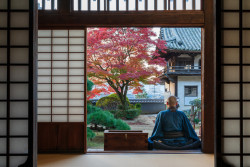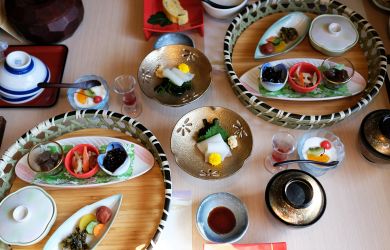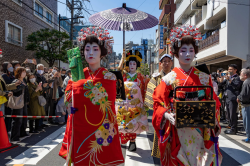
Originally published on metropolis.co.jp on September 2012

Raising teenagers is tough enough when they’re yours. Imagine how much harder if they are strangers suffering from years of neglect or abuse. The challenge of getting such a child to a mature, independent, productive adulthood is so immense there are few who would take it on. But luckily few is not none.
“Usually, children’s homes take care of kids aged 2-20, but in our case, we only look after junior-high and high schoolers. There are only two places in Japan that do that—our homes in Shinjuku and Adachi,” says Asako Arefune of Seishonen Fukushi Center (SFC), an organization caring for older kids orphaned or taken into state care. Not having high-maintenance younger kids around allows them to focus on the more intangible needs of their older charges.
SFC got its start in 1958. At that time, there were a lot of children who had been orphaned in the war, and after finishing junior high, were expected to provide for themselves. They had to find employment that offered lodging, but if they couldn’t or if they lost their jobs, they had nowhere to go.
In the beginning, it was only a tiny 4.5 tatami apartment where kids could stay and were trained to make wallets or to collect junk for sale as a means of supporting themselves. Now, SFC has five homes and assisted-living facilities, in addition to a home for the mentally handicapped. It cares for 96 young people.
SFC’s goal is to teach the kids independence, so that by the time they reach adulthood they can be regularly employed, and mentally and financially prepared to live alone. However, according to Arefune, their work has become harder in recent years as their kids are more likely to have suffered abuse or have mental-health issues. “First, when they come here, we try to teach them, ‘You are OK. You have a right to live,’” she says. “Most of them are worried whether they have any right to exist. It’s very difficult,” she says.
Takayuki Sakai, another SFC staff member, agrees, pointing out that every young person has a unique set of problems. “It’s difficult because we [including the kids themselves] don’t know exactly what the problems are. We have to help them figure them out, but we only have a limited amount of time. There are kids that come to us at 19 and have to leave at 20. It’s impossible to address 19 years of experience in one year.”
Still, they do the best they can, trying to help each child complete high school or pass the equivalency test. They help kids look for work, teach them how to budget, set up a savings account, look after daily necessities, and what to do in an emergency.
Unlike most other children’s homes, though, SFC doesn’t see their job as finished when the kids move out.
“After-care is a really important point for us,” says Arefune, describing events like Homecoming Day, where former residents are invited back, or the annual coming-of-age ceremony for current and former residents turning 20. “There are kids who have already married or had kids. While we might feel 20 is a bit early for all that, at the same time, to be able to see they’ve built a stable life after leaving us makes us really happy.”
SFC wants to be the kind of place that their charges can come back to to share their achievements, get advice and be role models for younger kids. In short, they want to be a real home, such as disadvantaged kids in Japan rarely have.
- SFC raises funds from charity bazaars a few times a year. They accept donations of unwanted items (except used clothes) to sell or give to kids. Appliances, furniture, and other home items are particularly useful. Items can be mailed to 1-12-20 Ohgi, Adachi-ku, Tokyo-to 123-0873
- SFC is recruiting volunteers to help with meal preparation at homes. Contact one of the homes directly if interested
- For more info see www.wfc.or.jp (Japanese only)







